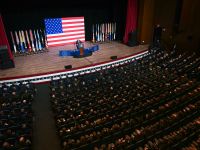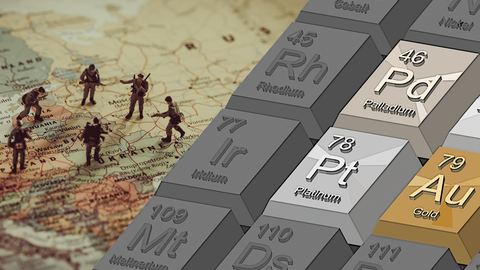The prospects for a strategic share-out of the vast resources lying under the Caspian Sea rose Monday after the presidents of the five bordering states agreed to discuss the issue at a summit in Turkmenistan next month.
Russia's Deputy Foreign Minister Viktor Kalyuzhny, responsible for the Caspian issue, told a news conference that the summit in late February and early March at Ashkhabad, on the border with Iran, was needed to give "a serious boost" to settling the long-standing dispute.
Since the break-up of the Soviet Union in December 1991 the states -- Azerbaijan, Iran, Kazakhstan, Russia and Turkmenistan -- have been unable to agree how to share out the hydrocarbon deposits and natural resources that lie under the inland sea.
But Kalyuzhny, speaking on his return from a two-day visit to Tehran, said they had "never been so close to resolving the problem of the status of the Caspian."
The stake in the game the five have been playing for the past decade is huge. The oil reserves believed to lie under the sea are estimated at around 30 billion barrels -- modest by the standards of the Gulf, but still sufficient to provide a massive fillip to the region's economies -- and gas reserves are estimated at more than 12,000 billion cubic meters (420,000 billion cubic feet).
Western prospection and extraction companies also have a major interest in the outcome of the talks.
The Ashkhabad summit falls just two weeks ahead of a visit to Russia by Iranian President Mohammad Khatami on March 19, also announced by Kalyuzhny.
He said that Russia and Iran, in response to a suggestion from Tehran, would prepare a joint statement on the Caspian ahead of Khatami's visit.
The reformist Iranian leader will be making his first trip to Russia since he was elected in 1997. Last week President Vladimir Putin made his first visit to the Caspian region, travelling to Baku where he and Azerbaijani President Heydar Aliyev pledged to resolve their dispute over their respective zones of the Caspian.
The two leaders signed an agreement they hailed as an "extremely important" step towards a general accord on the sea that would allow for the delineation of sectors of the sea-bed but not of the waters.
Tehran responded by saying it would not recognise any bilateral Russo-Azeri agreement on the status of the Caspian.
The Interfax news agency, citing Kalyuzhny, said the deputy foreign ministers of the five littoral states were to meet in Tehran to discuss the Caspian issue in early February.
Meanwhile Kalyuzhny said a sticking-point was Iran's insistance on securing 20 percent of the Caspian's oil and gas reserves. "We're hoping their position will change during the meeting between Khatami and president Putin," he said. –AFP.
©--Agence France Presse.
© 2001 Mena Report (www.menareport.com)








